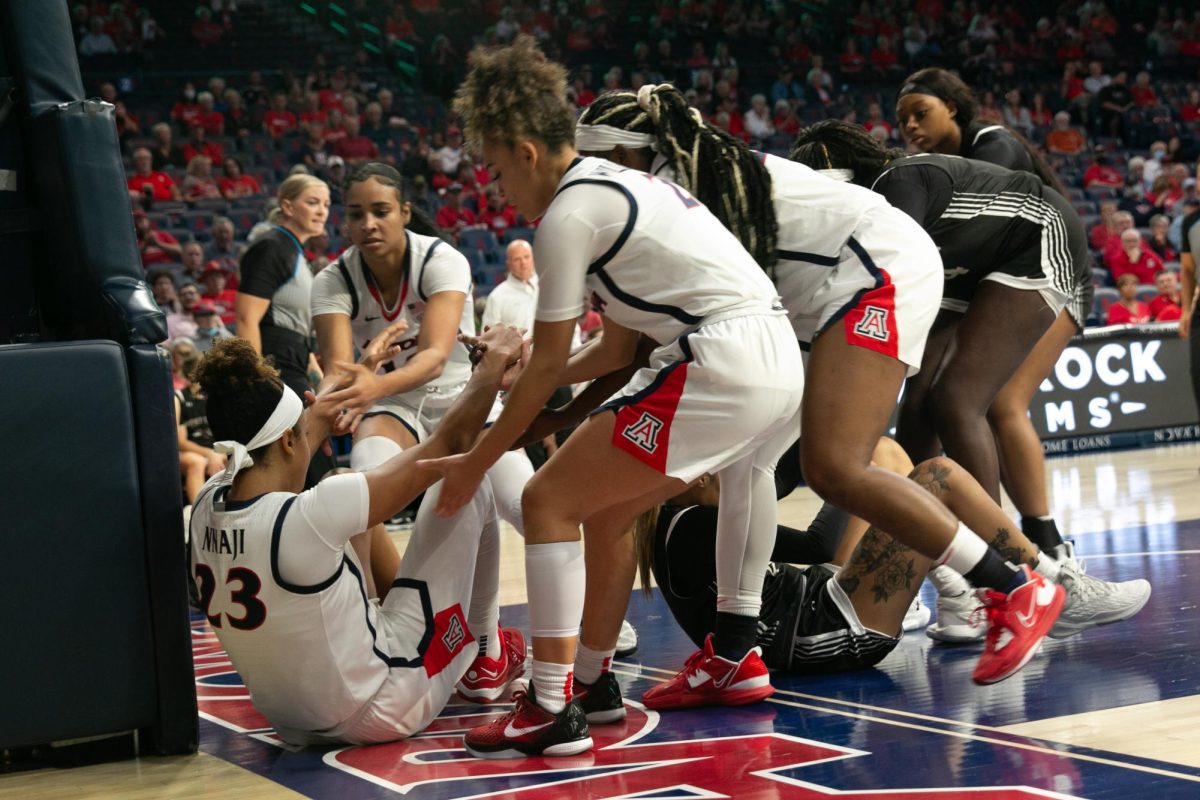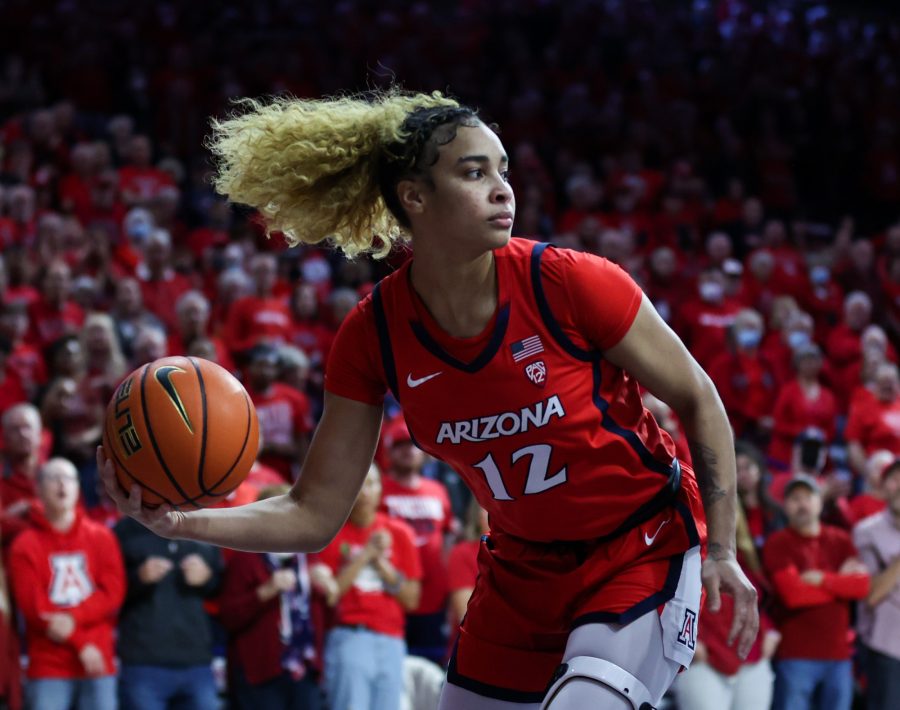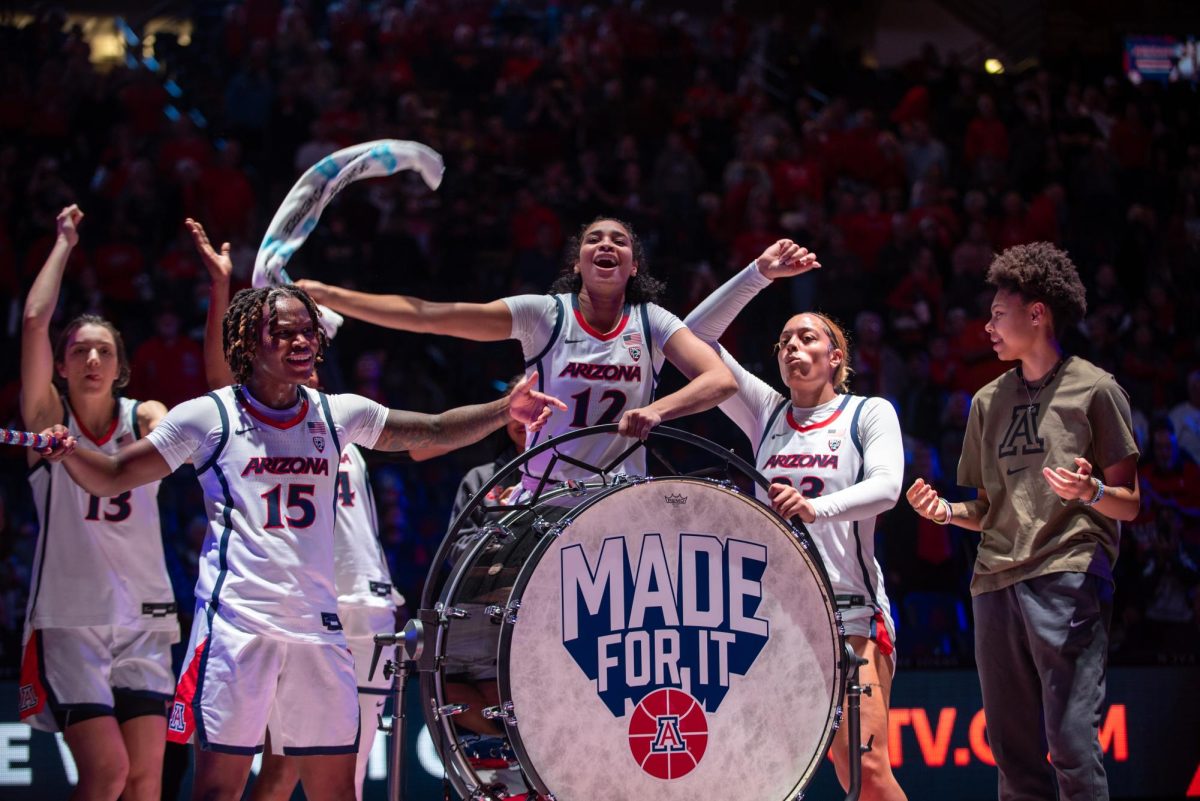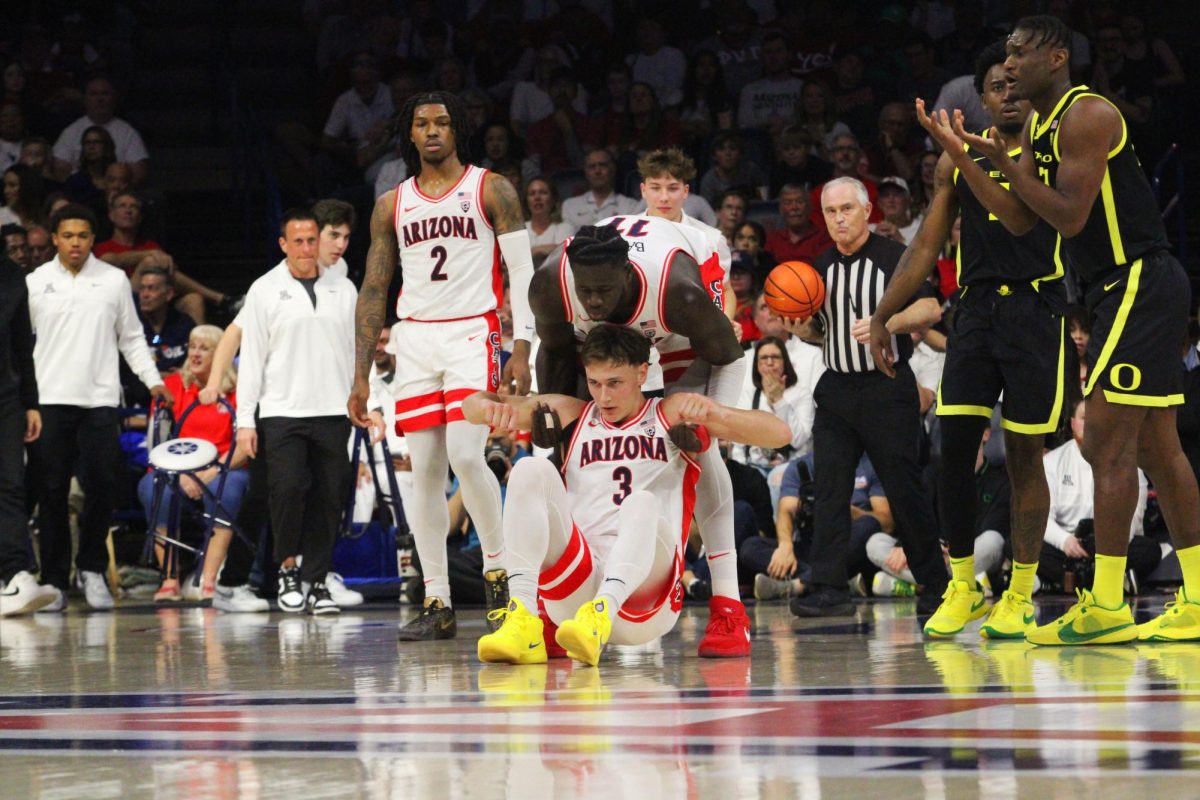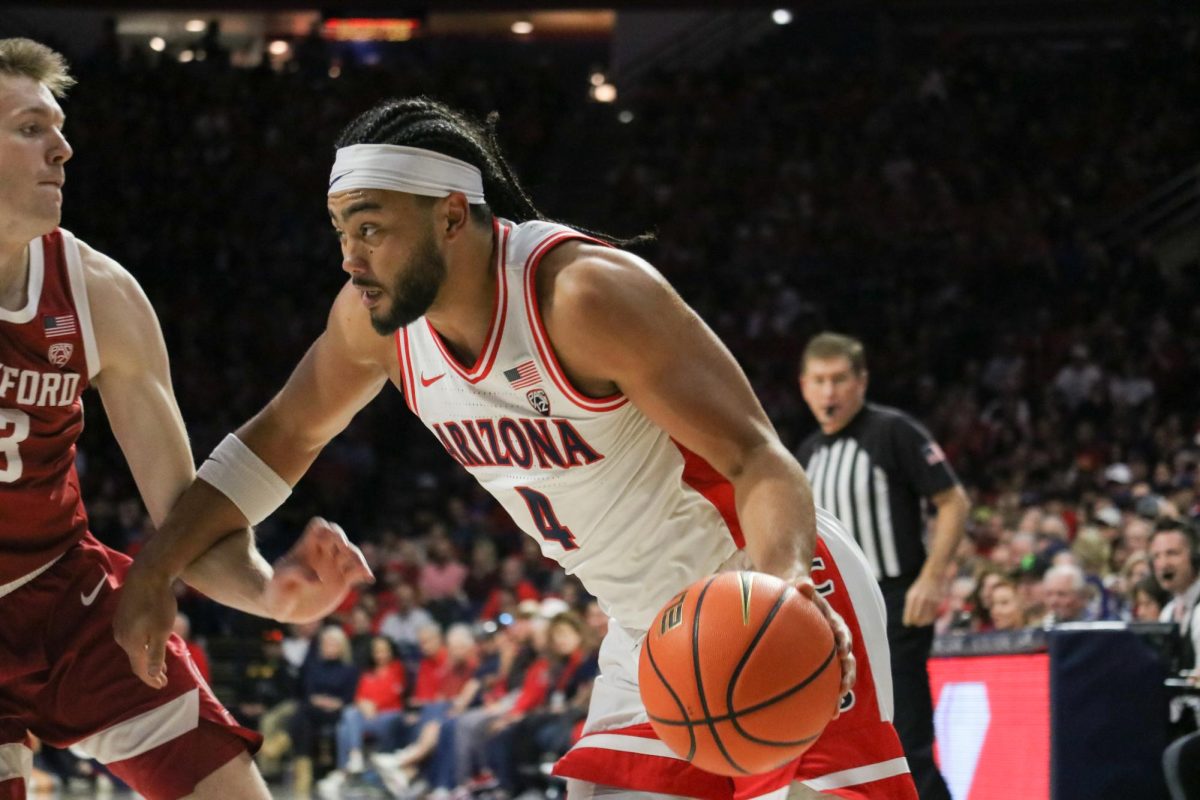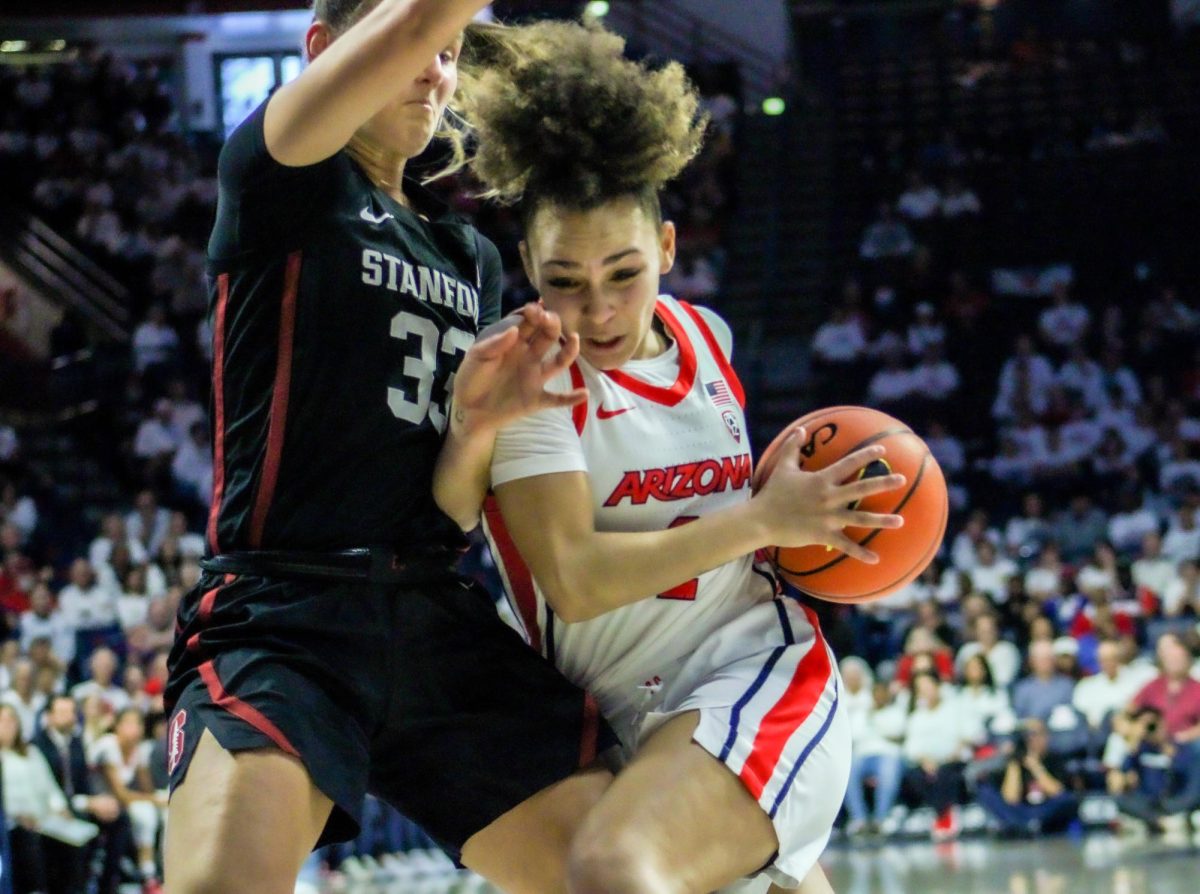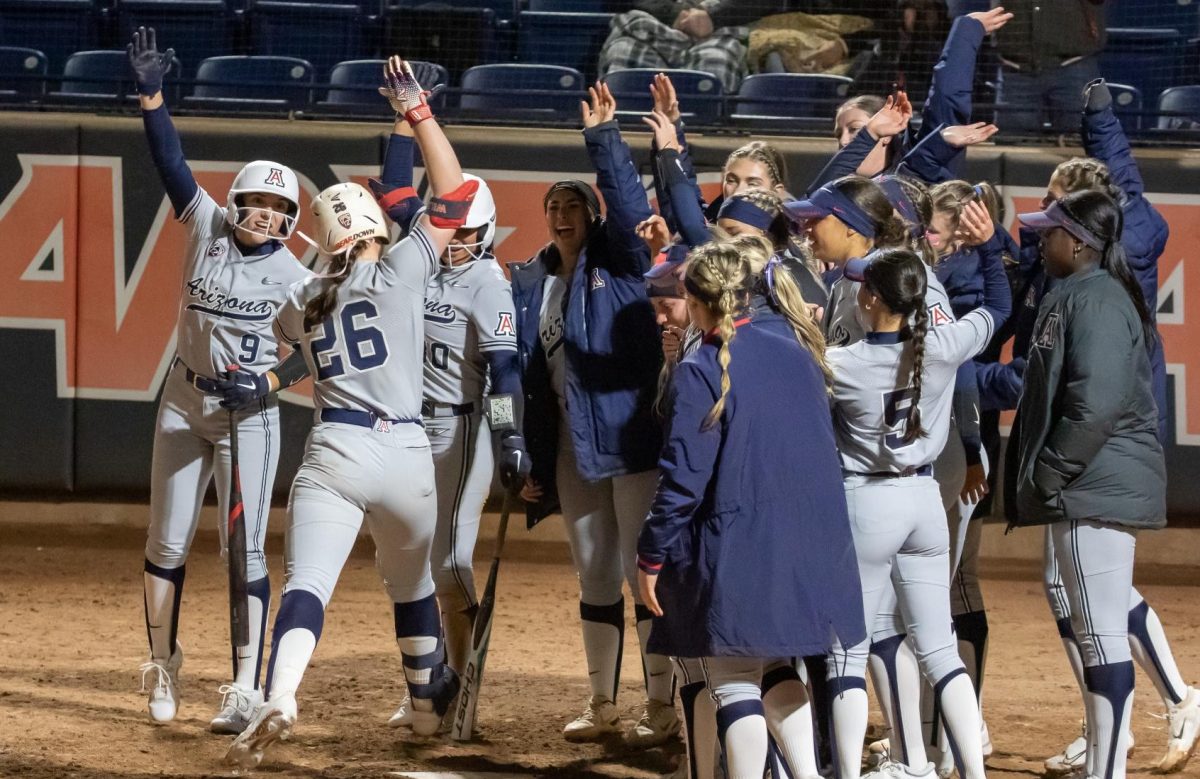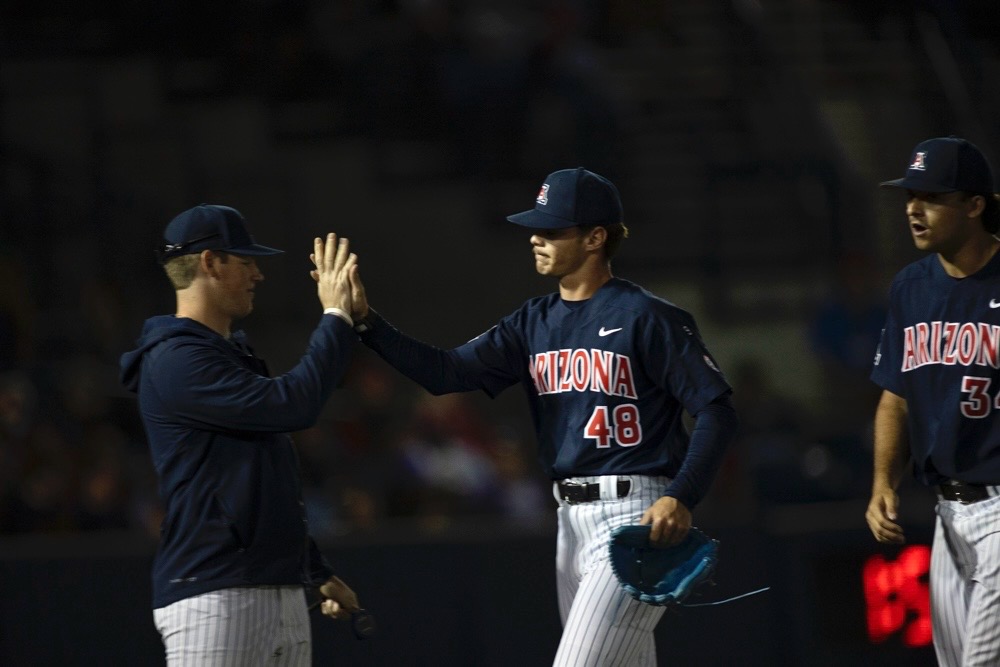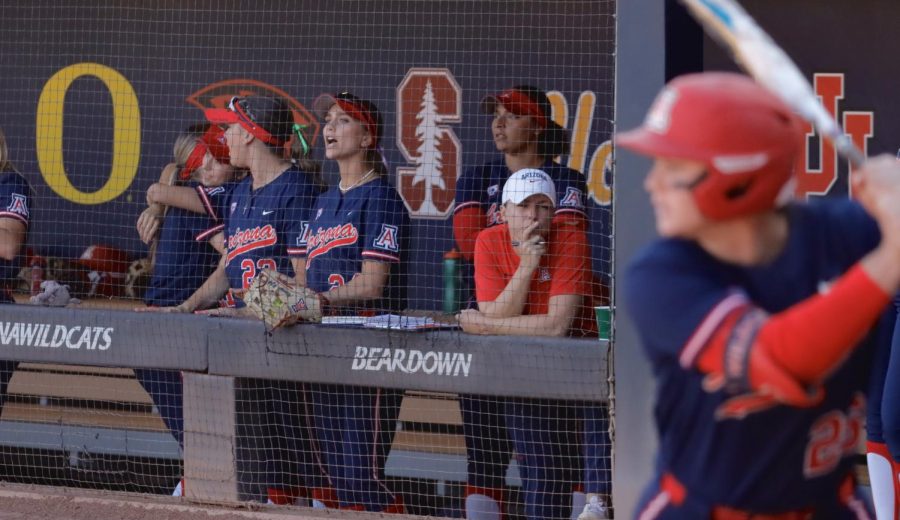Evan Rosenfeld
With its most productive big man out for the season, the question now is whether Arizona would be better off depending on a quicker, smaller lineup comprised of three guards and two big men.
No. 2 Arizona should go with a three-guard approach featuring established leaders in junior guards T.J. McConnell and Nick Johnson and rising sophomore guard Gabe York in the backcourt,
accompanied by freshman forward Aaron Gordon and sophomore center Kaleb Tarczewski rounding out the frontcourt.
Rondae Hollis-Jefferson could easily act as a second frontcourt man coming off the bench and sub in for the 7-foot Tarczewski when the team needs to strike with quick, efficient offensive drives.
This rotation gives the Wildcats added depth and intensity on the offensive glass, which will lead to more possibilities of second-chance points.
In Arizona’s two most recent wins against Stanford and Utah, the Wildcats depended on their ability to effectively clear the offensive glass to win the contests. In the UA’s loss to Cal, offensive rebounding kept Arizona competitive, and nearly won them the game despite a night of season-low shooting.
The Wildcats could have easily lost a couple close matches this year if it weren’t for the offensive rebounds Hollis-Jefferson pulled down. Over Arizona’s past three games, he has compiled 10 offensive rebounds and currently ranks second on the team with 55 this year — 12 more than Tarczewski has.
With the versatile Hollis-Jefferson coming off the bench, the three-guard rotation adds a deadly 1-2 offensive punch.
Roberto Payne
Losing Brandon Ashley for the year could end up dooming Arizona’s season, but dwelling on that is asking for trouble. It’s time to move on.
What’s next involves replacing Ashley’s production and figuring out the rotation, now that Rondae Hollis-Jefferson is expected to be the new starter.
I say stick with what has made this Arizona team so deadly and continue to use bigger lineups. The team is in the middle of a record-breaking year, and there’s no reason to change what has gotten the Wildcats to this point.
Arizona is so good because of an outstanding defense and the ability to control the rebounding margins.
The Wildcats are fifth in the nation in scoring defense with 56.8 points per game, sixth in rebounding margin at 9.5 and 27th in rebounds per game with 39.
It’s safe to say Arizona’s calling card all season has been rebounding and defense. Keeping up the defensive intensity and rebounding numbers should be prioritized.
This is the spot that could’ve been perfect for Grant Jerrett, who left early for the NBA Draft. However, head coach Sean Miller doesn’t have the luxury of having him waiting in the wings.
That means more playing time for Tucson product Matt Korcheck. Despite having played only 45 minutes all season, Korcheck brings the kind of bulk that is now needed down-low. He would essentially take over the now-vacant bench role that Hollis-Jefferson occupied.
Korcheck is obviously not the same type of player as Hollis-Jefferson, but he seems to have Miller’s support. At least, more support than Miller has for Zach Peters.
Playing small ball would mean better offensive numbers but an overall worse defensive system. Don’t get me wrong; offense is great. It’s just not what makes this season’s Arizona team so special.
As the old saying goes, “Defense wins championships.”
—Follow Evan Rosenfeld @EvanRosenfeld17
—Follow Roberto Payne @HouseOfPayne555



